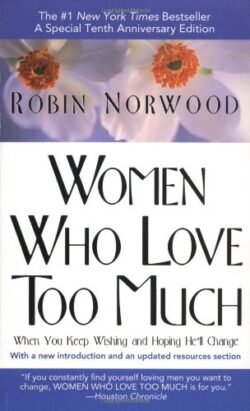“Women Who Love Too Much” by Robin Norwood, first published in 1985, is a groundbreaking book that delves into the psychology of women who find themselves repeatedly drawn into unhappy and unfulfilling relationships. Norwood explores the concept of loving too much as a pattern of behavior rooted in deep-seated psychological needs and past trauma. She describes how some women become fixated on partners who are emotionally unavailable, abusive, or otherwise incapable of healthy love, often as a result of unresolved issues from their own childhoods.
The book serves as both an eye-opening analysis of this phenomenon and a guide for women caught in the cycle of loving too much. It offers insights into recognizing destructive patterns, understanding the underlying causes of these behaviors, and taking steps toward healing and developing healthier relationship dynamics.
Character Analysis
- As a non-fiction self-help book, "Women Who Love Too Much" does not have characters or a narrative arc in the traditional sense. Instead, it features case studies and examples of real women whom Robin Norwood has encountered in her practice as a therapist. These stories illustrate the varied manifestations of loving too much and the complex interplay of factors that contribute to this condition.
Themes and Analysis
- Self-Worth and Dependency: A core theme of the book is the issue of self-worth and how a lack of it leads to dependency on others for validation, often manifesting in the choice of dysfunctional partners.
- Cycle of Addiction: Norwood draws parallels between loving too much and addictive behaviors, suggesting that the compulsion to stay in painful relationships is akin to an addiction that requires intervention and recovery.
- Healing and Recovery: The book emphasizes the possibility of breaking free from the cycle of loving too much through self-awareness, therapy, and support. It advocates for establishing boundaries, cultivating self-love, and seeking healthy relationships.
“Women Who Love Too Much” has become a seminal work in the field of relationship psychology, offering valuable insights for both individuals who identify with loving too much and professionals working with them. Robin Norwood’s compassionate approach and practical advice have helped countless women recognize their patterns of destructive loving and embark on the path to recovery and fulfillment. The book remains a crucial resource for anyone seeking to understand the dynamics of unhealthy emotional attachments and how to move toward more loving and balanced relationships.
If the summary caught your interest,
Consider reading the full book on AbeBooks.
Explore this book on AbeBooks
